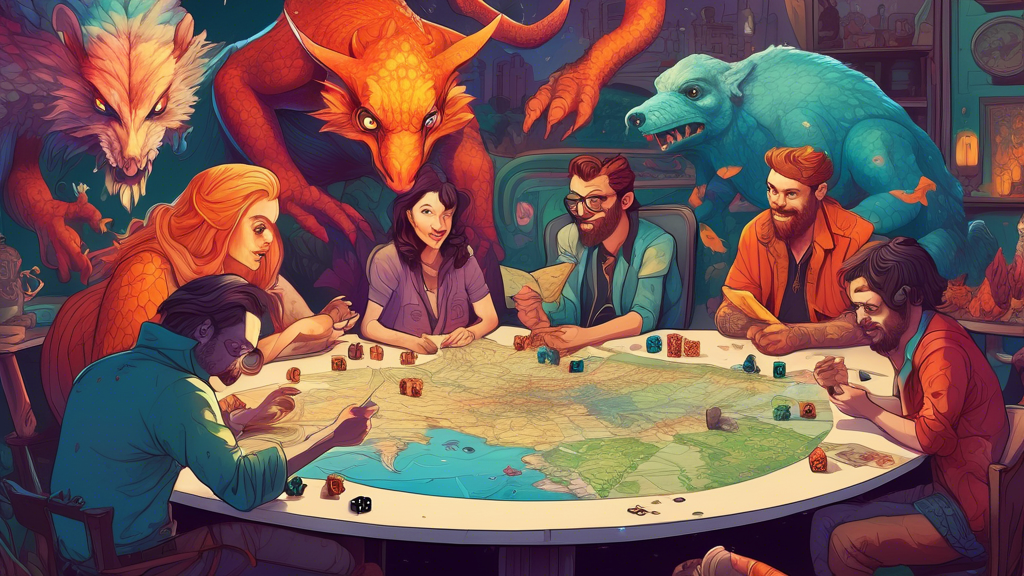DND is a commonly used acronym that stands for Dungeons & Dragons. It’s a tabletop role-playing game (TTRPG) where players create and control fictional characters within a fantasy setting. Guided by a Dungeon Master (DM), participants embark on imaginative adventures, battling fantastical creatures, solving puzzles, and exploring rich narratives.
Understanding Dungeons & Dragons
Dungeons & Dragons, affectionately shortened to D&D or DnD, has captivated imaginations since its inception in the 1970s. Here’s a breakdown of its core components:
Gameplay
D&D is a collaborative storytelling experience. Players describe their actions, while the DM narrates the results and guides the overall narrative. The game relies heavily on imagination, improvisation, and strategic thinking. Dice rolls, typically with 20-sided dice (d20), determine the success or failure of actions, adding an element of chance and excitement.
Character Creation
One of the most engaging aspects of D&D is creating unique characters. Players choose a race (like human, elf, or dwarf), a class (such as fighter, wizard, or rogue), and assign various attributes and skills. This personalized character becomes their avatar in the game world.
The Dungeon Master (DM)
The Dungeon Master is the game’s storyteller and referee. They create the adventure, control non-player characters (NPCs), describe the environment, and adjudicate rules. The DM plays a pivotal role in shaping the players’ experience.
Adventures and Campaigns
D&D is typically played in sessions, where a group gathers to play through a specific scenario or quest. These sessions can be linked together to form longer campaigns, unfolding epic narratives that can last for weeks, months, or even years.
Why DND Stands for Dungeons & Dragons
The name Dungeons & Dragons reflects the game’s initial focus on dungeon crawling and dragon slaying. While the game has evolved to encompass a vast array of themes and settings, the iconic name has endured.
The Popularity and Evolution of DND
Dungeons & Dragons has experienced a surge in popularity in recent years, attracting a diverse player base that spans generations. Factors contributing to its resurgence include:
Accessibility
The availability of online platforms like Roll20 and Fantasy Grounds has made it easier than ever to play D&D remotely. Physical editions of the game remain popular, but digital tools have expanded accessibility.
Streaming and Podcasts
Liveplay D&D streams and podcasts, showcasing the game’s entertaining and engaging nature, have introduced a new generation to the hobby.
Pop Culture Influence
D&D has become increasingly integrated into mainstream media. Popular shows like Stranger Things have showcased elements of the game, further boosting its visibility.
Community and Social Connection
D&D fosters a strong sense of community. Players connect with each other, share stories, and build friendships through shared experiences.
Beyond the Game: The Benefits of Playing DND
While D&D is undeniably fun, it also offers various cognitive and social benefits:
Creativity and Imagination
D&D encourages players to think creatively, improvise solutions, and engage in imaginative problem-solving.
Social Skills and Collaboration
The game promotes teamwork, communication, and negotiation as players work together to overcome challenges.
Storytelling and Narrative Development
D&D provides a framework for collaborative storytelling, allowing players to participate in shaping an unfolding narrative.
Problem-Solving and Critical Thinking
The game presents players with puzzles, strategic decisions, and ethical dilemmas, fostering critical thinking skills.
Getting Started with DND
If you’re interested in exploring the world of D&D, here’s how to get started:
Gather a Group
Find friends or family members who are interested in playing. Local game stores and online communities can help connect you with other players.
Choose a Dungeon Master
Select someone to be the Dungeon Master. They’ll guide the adventure and manage the game mechanics.
Create Characters
Work together to create unique characters that will inhabit the game world. Consult rule books and online resources for guidance.
Choose an Adventure
Select a pre-written adventure or work with the DM to craft a custom campaign.
Gather Supplies
You’ll need dice, character sheets, pencils, and potentially rule books or online resources.
Conclusion
DND, short for Dungeons & Dragons, is more than just a game; it’s a portal to imaginative realms, collaborative storytelling, and meaningful social connections. Whether you’re a seasoned adventurer or a curious newcomer, D&D offers an engaging and enriching experience that transcends the boundaries of the tabletop.





No comments! Be the first commenter?